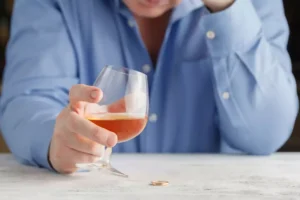
Never disregard professional medical advice or delay in seeking it because of something you have read on this website. This website does not recommend or endorse any specific tests, physicians, products, procedures, opinions, or other information that may be mentioned on the Site. Reliance on any information provided by this website is solely at your own risk.
- Our hopelessness and our instinctive desire to give up were spot-on, or else we would be happy all the time.
- In both examples, the abstinence violation effect manifests as an intense emotional response to a perceived lapse in recovery efforts, leading to further distress and potentially harmful behaviors.
- It can impact someone who is trying to be abstinent from alcohol and drug use in addition to someone trying to make positive changes to their diet, exercise, and other aspects of their lives.
- These variations can depend on things like individual self-control, the motivation for the abstinence, and other factors.
How AVE Affects Our Attempts at Recovery
We feel an urge or encounter a trigger, and suddenly we decide that our attempts at recovery have failed. It doesn’t seem logical that we would still experience cravings when we were only just recently hurt by a relapse. We fail to realize that putting drugs and alcohol back in our system was likely what reignited our cravings in the first place.
Navigating the Abstinence Violation Effect in Eating Disorder Recovery
Substance use disorders are clinical mental health disorders, meaning addiction is a matter of neurological and biological predispositions and changes that take time to rectify. These rectifying steps usually include changing external elements rather than finding a magic button of willpower. Rather than labeling oneself as a failure, weak, or a loser, recognizing the effort and progress made before the lapse can provide a more balanced perspective. For Jim and Taylor, this might involve acknowledging the months of sobriety and healthier lifestyle choices and understanding that a single incident does not erase that progress.
- They can help you reframe your recovery journey and develop healthier coping mechanisms for triggers and relapses.
- Substance use disorders are clinical mental health disorders, meaning addiction is a matter of neurological and biological predispositions and changes that take time to rectify.
- Understanding the underlying mechanisms can help individuals in recovery develop strategies to manage the AVE effectively and promote resilience in maintaining their desired behaviors.
- Similarly, someone trying to quit smoking might smoke a whole pack of cigarettes after just having one.
AVE and the 12-Step Approach

This literature – most of which has been conducted in the U.S. – suggests a strong link between abstinence goals and treatment entry. The study was especially notable because most other treatment readiness measures have been validated on treatment-seeking samples (see Freyer et al., 2004). This finding supplements the numerous studies that identify lack of readiness for abstinence as the top reason for non-engagement in SUD treatment, even among those who recognize a need for treatment (e.g., Chen, Strain, Crum, & Mojtabai, 2013; SAMHSA, 2019a). Mark’s key responsibilities include handling day-to-day maintenance matters and oversees our Environment of Care management plan in conjunction with Joint Commission and DCF regulations. Mark’s goal is to provide a safe environment where distractions are minimized, and treatment is the primary focus for clients and staff alike. Mark received a bachelor’s degree in Business Administration, with a minor in Economics from the University of Rhode Island.
Abstinence Violation Effect (AVE)
We can use our experiences to help others by telling them how relapse and abstinence violation effect caused us torment. If we can keep others from making the same mistakes, our experiences will serve a wonderful purpose. The memories of our slips may always sting a bit, but at least we can sleep easy at night knowing that we used them to do some good.
Tips for Rebuilding Life After Rehab
If you were initially treated for an addiction disorder, that therapist can provide additional help. Some people feel more comfortable or supported by meeting with this type of professional in person. If you prefer receiving this type of support from the comfort of your own home, you might consider working with a therapist virtually. With an online therapy platform like BetterHelp, for instance, you can get matched with a licensed provider who meets your needs and preferences, and you can speak with them via phone, video call, and/or online chat. They can help you reframe your recovery journey and develop healthier coping mechanisms for triggers and relapses.
Is abstinence effective?

In conclusion, the abstinence violation effect is a psychological effect that impacts those in recovery, as well as those who are focused on making more positive behavioral choices in their lives. By reframing lapses as learning opportunities and teachable moments, cultivating self-compassion, and seeking support, individuals can navigate these challenges more effectively, increasing their chances of leading a healthier lifestyle. Self-efficacy is defined as the degree to which an individual feels confident and capable of performing certain behaviour in a specific situational context5. For someone in the throws of an eating disorder (or even in eating disorder recovery), a perceived lapse in their prescribed eating plan or body image goals can trigger intense feelings of guilt, Sober living house shame, and self-blame. This can create a cycle of negative emotions that may lead to further restrictive behaviors, binge eating, or other harmful coping mechanisms. Alternatively, consider someone in recovery from binge eating disorder who has been working on intuitive eating and breaking the cycle of restrictive dieting.
- Some other examples of things a person might abstain from include drugs, sexual behaviors, unhealthy foods, tobacco, and social media.
- We remember that our urges do not control us, that we have power over our own decisions.
- Hopefully, one does not lose all the knowledge and experience gained along the journey.
- This can create a cycle of negative emotions that may lead to further restrictive behaviors, binge eating, or other harmful coping mechanisms.
- Although many view recovery as a static state that must be achieved, practitioners and individuals working to combat the AVE recognize that recovery is a spectrum, and that lapse and relapse operate on that spectrum.
- He is a member of over a dozen professional medical associations and in his free time enjoys a number of different activities.
The RP model views relapse not as a failure, but as part of the recovery process and an opportunity for learning. Marlatt (1985) describes an abstinence violation effect (AVE) that leads people to respond to any return to drug or alcohol use after a period of abstinence with despair and a sense of failure. By undermining confidence, these negative thoughts and feelings increase the likelihood that an isolated “lapse” will lead to a full-blown relapse. In a similar fashion, the nature of these attributions determines whether the violation will lead to full-blown relapse.

Moreover, people who have coped successfully with high-risk situations are assumed to experience a heightened sense of self-efficacy4. Although many view recovery as a static state that must be achieved, practitioners and individuals working to combat the AVE recognize that recovery is a spectrum, and that lapse and relapse operate on that spectrum. A single lapse does not have to result in a downward spiral of additional lapses and prolonged relapse, and a significant period of relapse does not have to culminate in a lifelong powerlessness over addictive behavior. Having healthy and effective coping strategies in place to anticipate a lapse or relapse can be pivotal, because the likelihood of never again lapsing into an addictive behavior is often quite low. AVE occurs when someone who is striving for abstinence from a particular behavior or substance experiences a setback, such as a lapse or relapse. Instead abstinence violation effect of viewing the incident as a temporary setback, the individual perceives it as evidence of personal failure, leading to increased feelings of guilt, shame, and hopelessness (Collins & Witkiewitz, 2013; Larimer, Palmer, & Marlatt, 1999).
